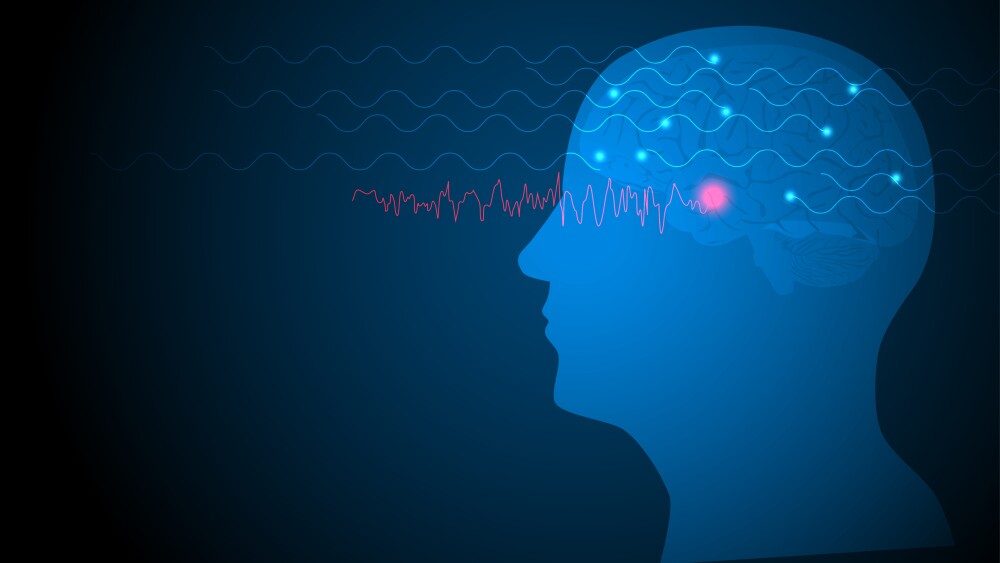ROCKVILLE, Ma., Nov. 5 /PRNewswire-FirstCall/ -- Human Genome Sciences, Inc. today announced the final results of a Phase 2 trial of the investigational drug, Albuferon(R) (albinterferon alfa-2b), in combination with ribavirin in patients with chronic hepatitis C who failed to respond to previous interferon-based therapy. The results were presented yesterday in Boston at the 58th AASLD Annual Meeting in Boston.
(Logo: http://www.newscom.com/cgi-bin/prnh/20010612/HGSLOGO )
"The results of the Albuferon non-responder study demonstrated that Albuferon treatment at doses up to 1800 mcg every two weeks had an acceptable long-term safety profile and produced an overall sustained virologic response (SVR) rate of 17% in these patients," said David Nelson, M.D., Associate Professor of Medicine, Medical Director of Liver Transplantation, and Chief of the Hepatobiliary Disease Section, University of Florida. "In the difficult to treat subgroup of genotype 1 chronic hepatitis C patients who previously failed to respond to treatment with pegylated interferon and ribavirin, Albuferon treatment produced an overall SVR rate of 11%."
In the open-label, multi-center, dose-escalation Phase 2 trial, nonresponders to previous interferon-based therapy were randomized into three Albuferon treatment groups (900 mcg every two weeks, 1200 mcg every two weeks, and 1200 mcg every four weeks, followed by sequential escalation to 1500 mcg every two weeks, and 1800 mcg every two weeks). A total of 115 patients participated. All patients received weight-based oral ribavirin daily. The primary efficacy endpoint was sustained virologic response (SVR), defined as undetectable virus in the blood at 24 weeks post-48 weeks of treatment.
In two additional press releases issued by HGS today, the Company announced the full presentations at AASLD of efficacy and safety data, and quality-of-life data, from the Phase 2b trial of Albuferon in treatment-naive patients. These data demonstrated that, with half the injections required by the pegylated interferons, Albuferon provided at least comparable efficacy, comparable safety and the potential for less impairment of health-related quality of life and daily activity.
Key Findings from the Phase 2 Study in Non-Responders
Albuferon treatment in doses up to 1800 mcg every two weeks resulted in significant antiviral activity in previous nonresponders to interferon-based treatment for chronic hepatitis C. The overall SVR rate was 17.4%. In the important subgroup of genotype 1 patients who were previous nonresponders to treatment with a combination of pegylated interferon and ribavirin, the SVR rate was 10.7%. SVR rates by Albuferon treatment group were: 25% for 1200 mcg every four weeks; 30% for 900 mcg every two weeks; 13% for 1200 mcg every two weeks; 9% for 1500 mcg every two weeks; and 9% for 1800 mcg every two weeks. These SVR results are consistent with those observed with other long- acting interferons in patient populations that have failed prior interferon- based treatment regimens.
Albuferon had an acceptable long-term safety profile at all doses, including 1500 mcg and 1800 mcg. The most common adverse events were fatigue, headache, arthralgia (joint pain), myalgia (muscle pain), insomnia, nausea, cough, and pyrexia (fever). Discontinuation rates due to adverse events were: 4.2% for the 1200 mcg every four weeks group; 17.4% for the 900 mcg every two weeks group; 4.2% for the 1200 mcg every two weeks group; 9.1% for the 1500 mcg every two weeks group; and 18.2% for the 1800 mcg every two weeks group. Hematologic reductions stabilized by Week 8, were well managed with dose reductions, and returned to baseline following the completion of therapy.
"The results emerging from our Phase 2 program continue to support our belief that Albuferon could become an important therapeutic option for patients with chronic hepatitis C, including those that have failed prior therapy," said Mani Subramanian, M.D., Ph.D., Senior Director of Clinical Research, Infectious Diseases, HGS.
About Albuferon
Albuferon is a novel long-acting form of interferon alpha created by HGS using its proprietary albumin fusion technology. Albuferon results from the genetic fusion of human albumin and interferon alpha. Human albumin is the most prevalent naturally occurring blood protein in the human circulatory system, persisting in circulation in the body for more than 20 days. Research shows that genetic fusion of therapeutic proteins to human albumin decreases clearance and prolongs the half-life of the proteins. Recombinant interferon alpha is approved for the treatment of hepatitis C, hepatitis B and a number of cancers.
Albuferon is being developed by HGS and Novartis for the treatment of chronic hepatitis C under a worldwide co-development and commercialization agreement entered into in June 2006. HGS and Novartis will co-commercialize Albuferon in the United States and will share clinical development costs, U.S. commercialization costs and U.S. profits equally. Novartis will be responsible for commercialization in the rest of the world and will pay HGS a royalty on those sales. Clinical development, commercial milestone and other payments to HGS could total as much as $507.5 million, including $132.5 million received to date.
About Hepatitis C
Hepatitis C is an inflammation of the liver caused by the hepatitis C virus (HCV). An estimated 170 million people worldwide are infected with the virus, including nearly 4 million people in the United States. When detectable levels of HCV persist in the blood for at least six months, a person is diagnosed with chronic hepatitis C. Hepatitis C virus can cause serious liver disease, leading to cirrhosis, primary liver cancer and even death.
About Human Genome Sciences
The mission of HGS is to apply great science and great medicine to bring innovative drugs to patients with unmet medical needs.
The HGS clinical development pipeline includes novel drugs to treat hepatitis C, lupus, anthrax disease, cancer and other immune-mediated diseases. The Company's primary focus is rapid progress toward the commercialization of its two key lead drugs, Albuferon for hepatitis C and LymphoStat-B(R) (belimumab) for lupus. Phase 3 clinical trials of both drugs are ongoing.
ABthrax(TM) (raxibacumab) is in late-stage development for the treatment of anthrax disease, and the Company is on track to begin the delivery in 2008 of 20,000 doses of ABthrax to the Strategic National Stockpile under a contract entered into with the U.S. Government in June 2006. Other HGS drugs in clinical development include two TRAIL receptor antibodies for the treatment of cancers.
For more information about HGS, please visit the Company's web site at www.hgsi.com. To view the AASLD oral presentation reporting results of the Phase 2b clinical trial of Albuferon in combination with ribavirin in treatment-naive patients (Zeuzem, et al), click here. To view the AASLD poster presentation reporting quality of life results from the Phase 2b clinical trial of Albuferon (Pianko, et al), click here. To view the AASLD oral presentation reporting results of the Phase 2 trial of Albuferon in non- responders (Nelson, et al), click here. To view the AASLD poster presentation reporting results of a prospective comparison of commercial fibrosis serum marker panels (Patel, et al), click here. For more information about Albuferon, please visit www.hgsi.com/products/albuferon.html. Health professionals or patients interested in Albuferon clinical trials or other studies involving HGS products may inquire via the "Contact Us" section of the Company's web site, www.hgsi.com/products/request.html, or by calling (301) 610-5790, extension 3550.
HGS, Human Genome Sciences, ABthrax, Albuferon and LymphoStat-B are trademarks of Human Genome Sciences, Inc.
Safe Harbor Statement
This announcement contains forward-looking statements within the meaning of Section 27A of the Securities Act of 1933, as amended, and Section 21E of the Securities Exchange Act of 1934, as amended. The forward-looking statements are based on Human Genome Sciences' current intent, belief and expectations. These statements are not guarantees of future performance and are subject to certain risks and uncertainties that are difficult to predict. Actual results may differ materially from these forward-looking statements because of the Company's unproven business model, its dependence on new technologies, the uncertainty and timing of clinical trials, the Company's ability to develop and commercialize products, its dependence on collaborators for services and revenue, its substantial indebtedness and lease obligations, its changing requirements and costs associated with facilities, intense competition, the uncertainty of patent and intellectual property protection, the Company's dependence on key management and key suppliers, the uncertainty of regulation of products, the impact of future alliances or transactions and other risks described in the Company's filings with the Securities and Exchange Commission. In addition, the Company will continue to face risks related to animal and human testing, to the manufacture of ABthrax and to FDA concurrence that ABthrax meets the requirements of the ABthrax contract. If the Company is unable to meet the product requirements associated with the ABthrax contract, the U.S. government will not be required to reimburse the Company for the costs incurred or to purchase any ABthrax doses. Existing and prospective investors are cautioned not to place undue reliance on these forward-looking statements, which speak only as of today's date. Human Genome Sciences undertakes no obligation to update or revise the information contained in this announcement whether as a result of new information, future events or circumstances or otherwise.
CONTACT: Jerry Parrott, Vice President, Corporate Communications,
+1-301-315-2777, Kate de Santis, Director, Investor Relations,
+1-301-251-6003, both of Human Genome Sciences, Inc.
Web site: http://www.hgsi.com//
Company News On-Call: http://www.prnewswire.com/comp/121115.html/




